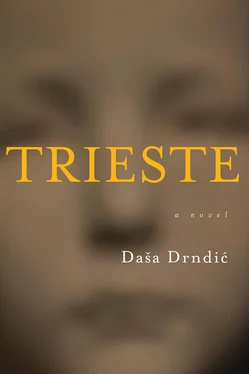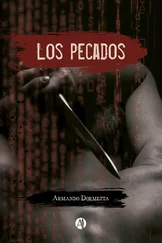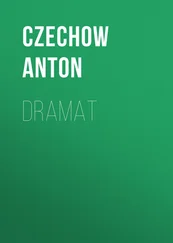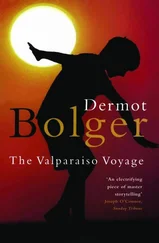It is a Saturday. The snow is melting. Spring is on its way. She goes to the Ospedale Civile for a check-up with Dr Boschetti, who says, Everything is fine. Come back in a month . Airplanes buzz over Gorizia at about eleven o’clock. At 11.30 the bombs begin to fall. Haya huddles under the counter in her tobacco shop.
At dinner Florian says, At least one hundred and fifty people were killed .
Orestes says, Enzo blew up into thin air .
Ada asks, Enzo who?
Enzo, my eight-year-old pal, says Orestes.
Enzo Vida. The son of that Gigette, daughter of Luigi Spanghero, Letizia says.
He is in the partisans, Florian says.
Then Orestes shouts, Today I collected a whole pile of nifty shrapnel!
Haya says nothing.
This is the day.
Yes, Gorizia lives a parallel life, parallel lives, fractured, schizoid, from the inside.
In 1991 Haya finds a book, Un Altro Mare by Claudio Magris, in her postbox, sent to her by Roberto Piazza, a former student of hers. Roberto Piazza writes that he wouldn’t be surprised if she, Professor Tedeschi, has no memory of him, because he was an average student, in fact a poor mathematician, but that doesn’t worry him at all. He, on the other hand, remembers his teacher, whom he hasn’t thought of for years, probably because he was busy with other things that had nothing to do with mathematics. All the same, Roberto Piazza says, when he read the book he is sending her, his former maths teacher Haya Tedeschi, when he read the slender but powerful volume he is giving her, his former teacher, as a gift, through the mail, like this, it hit him that in all the five years she taught them (from 1971 to 1976, right?), she, their teacher Haya Tedeschi, never once spoke of the war, or of the people who disappeared in town during the war, World War Two, you know? writes Roberto Piazza. Also, he writes, he is surprised that she, their maths teacher, never spoke to them, her students, the class of 1971–76, of Renato Caccioppoli, the famous mathematician, especially since word got around school that she, Haya Tedeschi, attended the gymnasium in Naples at roughly the same time Caccioppoli was living there, in Naples, and that he was an anti-fascist, isn’t that so? And the fascists arrested him and he had to hide out in an insane asylum, writes Roberto Piazza, but since she, their teacher was just an ordinary schoolgirl at the time, who maybe decided to become a mathematician later, you know, because of awkward things going on in her life, perhaps, you know, maybe it isn’t so strange that she doesn’t seem to have known anything about Professor Caccioppoli. He, writes Roberto Piazza, lives in Rome now where he works in graphics, in a manner of speaking — he is a graphic designer, and he is now working on the layout of a book about Gorizia’s famous people, and so he came across names which none of his teachers at the Dante Alighieri Gymnasium had ever mentioned during his five years there from 1971 to 1976, you know, while he, Roberto Piazza, was going to the Gymnasium more or less every day, and, writes Roberto Piazza, he finds this very surprising. For instance, writes Roberto Piazza, only when he read the book he is sending her, her, his maths teacher, only when he read A Different Sea, Un Altro Mare, did he understand that there are threads interwoven in Gorizia, the beginnings of which are impossible to divine, threads that can no longer be disentangled, in whose snarl lies an entire cocooned history.
His uncle, Bruno Piazza, writes Roberto Piazza, escaped alive from the San Sabba rice mill, unlike thirty-three members of his, their, immediate and larger family, and they are Alceo Piazza, Antelo Piazza, Angelo Piazza, Anita Piazza, Bruno Piazza, Donato Piazza, Edvige Piazza, Elio Piazza, Elisa Piazza, Elvira Piazza, Emanuele Piazza, Fernanda Piazza, Giacomo Piazza, Gina Piazza, Gino Piazza, Giuseppe Piazza, Maria Luisa Piazza, Rachele Piazza, Regina Piazza, Sed Angelo Piazza, Sed Camilla Piazza, Sed Cesira Piazza, Sed Consola Piazza, Sed Costanza Piazza, Sed Emma Piazza, Sed Ester Piazza, Sed Eugenio Piazza, Sed Leda Piazza, Sed Marco Piazza, Sed Rosa Piazza, Sed Sara Piazza, Umberto Piazza, Virginia Piazza, who ended up at Auschwitz and Dachau, among them his grandfather, also Bruno Piazza, writes Roberto Piazza. I lay on the floor, on boards, as his uncle, Bruno Piazza, tells it, writes Roberto Piazza, and they beat me until I passed out. At night voices reached my cell, telling me what was happening, and horrible things were happening, someone on the other side of the wall whispered: I am buried alive, no air, thirsty, tonight they’ll shoot me, Bruno Piazza says, but the next morning the man was incinerated , not shot, incinerated , Bruno Piazza says, as Roberto Piazza writes. Then a woman spoke up who said that every night they were shooting people in the back of the head, and after every shot the dogs barked something terrible, that was how they killed lots of partisans, but I got out, says his uncle Bruno Piazza, writes Roberto Piazza.
In the envelope are the names of about 9,000 Jews who were deported to Nazi camps between 1943 and 1945 or killed in Italy, writes Roberto Piazza. There are people from Gorizia, maybe his teacher remembers some of them, writes Roberto Piazza. On the list there are forty-four people with the last name Tedeschi: Ada Tedeschi, Ada Tedeschi, Adelaide Tedeschi, Adele Tedeschi, Adolfo Tedeschi, Alberto Sebastiano Tedeschi, Arrigo Tedeschi, Benvenuta-Ines Tedeschi, Bianca Tedeschi, Bice Tedeschi, Emanuele Amedeo Tedeschi, Emma Tedeschi, Emma Bianca Tedeschi, Ermenegilda Tedeschi, Ernesta Irma Tedeschi, Eugenia Tedeschi, Ezio Tedeschi, Francesca Tedeschi, Franco Tedeschi, Giacomo Tedeschi, Giacomo Tedeschi, Giacomo Tedeschi, Giacomo-Mino Tedeschi, Gino Tedeschi, Gino Tedeschi, Giorgio Eugenio Tedeschi, Giuliana Tedeschi, Gualtiero Tedeschi, Irene Tedeschi, Lidia Tedeschi, Lionello Tedeschi, Luciano Tedeschi, Mafalda Ida Tedeschi, Marco Tedeschi, Marisa Tedeschi, Natalia Tedeschi, Sabato Giuseppe Tedeschi, Salomone Tedeschi, Salvatore Tedeschi, Silvio Tedeschi, Umberto Tedeschi, Vittoria Tedeschi, Vittorio Tedeschi, Wanda Tedeschi, had his teacher, Haya Tedeschi, heard of some of these people? Had she known some of them? writes Roberto Piazza. Was his former teacher, Haya Tedeschi, aware of them? he enquires.
Since he is working on designing this book on famous Gorizians, writes Roberto Piazza, he thought of her as well, his teacher Haya Tedeschi, and he wants to take this opportunity to ask what the war years were like for her, his teacher, does she have any memories, and he would also like to ask her, the maths teacher from the Dante Alighieri Gymnasium in Gorizia, why she never took them in 1975 to visit the museum, which opened that year on the site where the San Sabba camp had been.
Roberto Piazza writes in detail to his former maths teacher from the Gorizia Dante Alighieri Gymnasium about the philosophy of Carlo Michelstaedter, though when she perused his little tractate in 1991 Haya Tedeschi hadn’t understood what it was all for. Michelstaedter came from a prominent Gorizia Jewish family, writes Roberto Piazza. He wanted to study mathematics in Vienna, but he went to Florence to study art history. She, his teacher Haya Tedeschi, must surely have heard of him, of Michelstaedter, writes Roberto Piazza. Today Carlo Michelstaedter is very popular, writes Roberto Piazza, he is even mentioned in the little Gorizia tour guides. He doesn’t want to tire her with philosophy and Carlo Michelstaedter’s biography, writes Roberto Piazza, but if she is interested in the life and philosophy of Carlo Michelstaedter, if she is interested in his paintings and poems, she will find plenty of material even in the modest Gorizia bookstores, he merely wants to remind her of the fate of his (Carlo’s) mother Emma Luzzatto, the fate of his (Carlo’s) sister Elda, the fate of his close friend Argia Cassini, to whom, in 1908, two years before he shoots himself with a pistol belonging to his friend Enrico Mreule, Carlo pens these verses in Piran
Читать дальше












